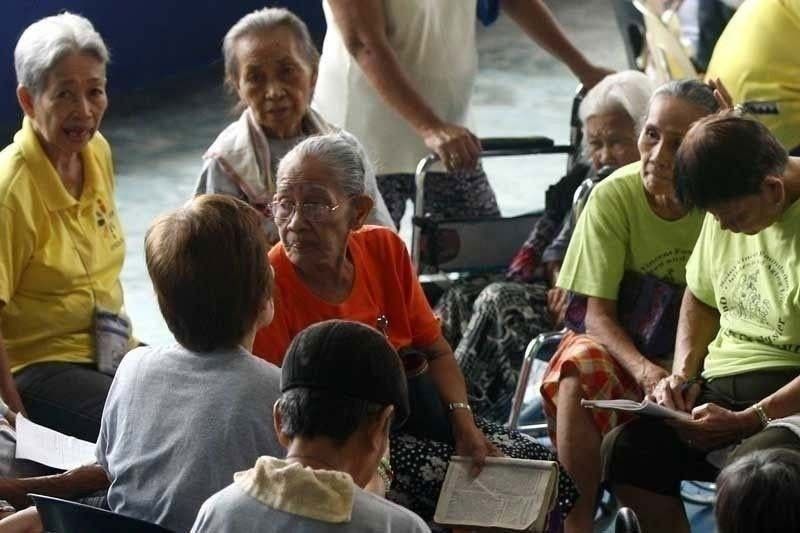
MANILA — After drawing flak for including stock footage of other countries in the promotional video for a new tourism campaign, the Department of Tourism has announced the termination of its contract with advertising firm Doyle, Dane and Bernbach (DDB) Philippines, which the DOT had tapped to handle the rebranding program.
The promotional video for “Love the Philippines” has since been taken down from DOT’s Facebook (Meta) and YouTube accounts.
“As DDB Philippines has publicly apologized, taken full responsibility and admitted in no uncertain terms that non-original materials were used in their AVP, reflecting an abject failure to comply with their obligation/s under the contract and a direct contravention with the DOT’s objectives for the enhanced tourism branding, the DOT hereby exercises its right to proceed with termination proceedings against its contract with DDB,” the DOT said in its statement yesterday.
The DOT maintained it has not paid DDB yet under the contract for the tourism campaign rebranding. Previously, Tourism Secretary Christina Garcia-Frasco said they spent P49 million to come up with the “Love the Philippines” campaign.
“The DOT shall exercise its right to forfeit performance security as a result of default in obligations under the contract, as well to review standards of performance or lack thereof vis-a-vis any claims for payment and/or any other engagement,” it said.
The department also said it is one with the public in “expressing our outrage and extreme disappointment at the use of non-original/stock footage purporting to be scenes from the Philippines in the audio visual presentation (AVP) prepared, produced and published by DDB Philippines as a component of the launch of the enhanced tourism branding campaign for the country.”
Portions of the almost two-minute video for the Love the Philippines campaign showed places in Brazil, Indonesia, Switzerland and the United Arab Emirates, grabbed from stock image and footage websites, according to the fact-checking platform of Agence France-Presse.
DDB admitted the use of stock footage, which it said was “standard practice in the industry.” It added that the video it created and uploaded on social media was “intended to be a mood video to excite internal stakeholders about the campaign.”
ACT Teachers party-list Rep. France Castro said the “Love the Philippines” slogan could have been copied from the “Love Cyprus” slogan launched by the country’s Deputy Ministry of Tourism in 2021.
“It is unacceptable for the Marcos government to resort to plagiarizing campaign slogans from other countries,” she said.
Some netizens also pointed the new slogan’s similarity to “Love Barbados,” referring to the country in the Caribbean, as indicated in an article on the website of Travel+Leisure.
The DOT was also criticized during the second Aquino administration for allegedly copying the “It’s more fun in the Philippines” slogan from the “It’s more fun in Switzerland” used by the European country back in 1951. The slogan remained in use during the Duterte administration.
Foreign news agencies like the British Broadcasting Corp. and The Guardian, as well as CNN and Hong Kong-based English newspaper South China Morning Post reported the controversy spawned by the Philippines’ tourism rebranding gaffe.
Frasco earlier declared that the Love the Philippines tourism battlecry aimed to reintroduce the Philippines to the world “beyond fun,” amid post-pandemic relaxed travel restrictions.
‘Trabahong Tamad’
Rep. Joey Salceda, chairman of the ways and means committee of the House of Representatives, said the scandal is likely to have budgetary consequences for the DOT.
“I hope all these issues can be rectified before the budget hearings. Otherwise, I have a duty to ask questions,” Salceda said. The DOT’s budget for this year stands at P3.4 billion.
Lawmakers are expected to receive the P5.8-trillion budget proposal for 2024 shortly after President Marcos’ second State of the Nation Address on July 24. The Albay lawmaker earlier protested the non-inclusion of Mayon Volcano in the promotional video for the Love the Philippines campaign.
“One lesson here is not to dismiss legitimate concerns as ‘political soundbites’ but to listen, consult and discuss. The country’s branding is reflective of our identity and aspirations as a people,” he said. “What’s wrong with wanting to be represented well in that?”
“The whole mess with the contractor using stock footage in the promotional video proves my earliest point about the DOT either apologizing to Albay, or firing the consultant,” he said.
“Clearly, the exclusion of Mayon and other tourist attractions intrinsic to the Philippine brand was just a symptom of trabahong tamad (lazy work) that is now evident to everyone,” Salceda pointed out.
“Since the DOT will not be apologizing, the way forward seems clear,” the senior administration legislator stressed.
On DDB’s claim that the first video was just a “mood video,” Salceda replied that for “something as critical as an entire country’s image, you don’t set the mood with plagiarism.”
“As for the branding itself, the slogan is a creative decision best left to experts and its usefulness will be proven ultimately in tourist numbers. We will know soon enough if it works. So, I don’t want to comment on it,” he said.
Accountability
Senators, for their part, are demanding accountability. “There must be accountability because the DOT spends public money to pay the ad agencies,” Sen. Nancy Binay said.
“We expect Sec. Frasco to make right whatever went wrong, and ensure that the integrity of our brand will not be diminished due to an ‘oversight,’” Binay, chair of the Senate committee on tourism, added.
“This is not the first time that DOT and its agencies drew flak from netizens because of some creative lapses,” she pointed out.
“The DOT should also be more discerning and critical on pegs, concepts, storyboards and drafts that ad agencies present to them. There are also lapses on the part of the client,” she added.
“Aren’t we supposed to show authenticity? Such promotional anomalies directly affect the travelers’ decisions and at the same time portray a negative image of how we promote our destinations.”
Binay said the controversy would cast doubts on the authenticity of future TV ad or promotional materials of the DOT.
“And it seems like a bad omen because it seems that we still don’t learn from the past with non-original logos, slogans, designs or video clips,” she said.
“The paramount task is to ensure that there will be no pause in promoting our destinations despite the snag,” Binay said. “Maybe Fun can be brought back because of Love’s problem now.”
Sen. Grace Poe said “it’s frustrating to know that even the government can fall victim to blunders in a marketing campaign that supposedly aims to promote the Philippines’ unique character, natural beauty and cultural attractions,” even if “it has been said that there must be truth in advertising.”
She said the nation may have felt “scammed” by a deceptive advertisement.
“They (DOT) should at the very least redo the campaign video. The government seems to have lost money. We should have some pride in our work, especially if we are selling and marketing the Philippines,” Sen. Sonny Angara said.
“Wow as in grabe naman yang nangyari given the explanation. Nothing adds up. It’s like one plus one equals seven. Whew,” Minority Leader Aquilino Pimentel III said, expressing exasperation.
Veteran PR and advertising practitioner Dindo Danao said the DOT and its advertising agency may have taken President Marcos and the Filipino taxpayers for a ride when they presented a plagiarized tourism video.
“It is a covenant between ad agencies and their clients that they must always speak and show the ‘truth’. It is the most valued dictum among stakeholders in the ad industry,” Danao, managing partner of A. Danao PR Team, said in a statement.








whoah this weblog is excellent i really like reading your posts.
Keep up the good work! You know, many persons are searching around for this
info, you could aid them greatly.